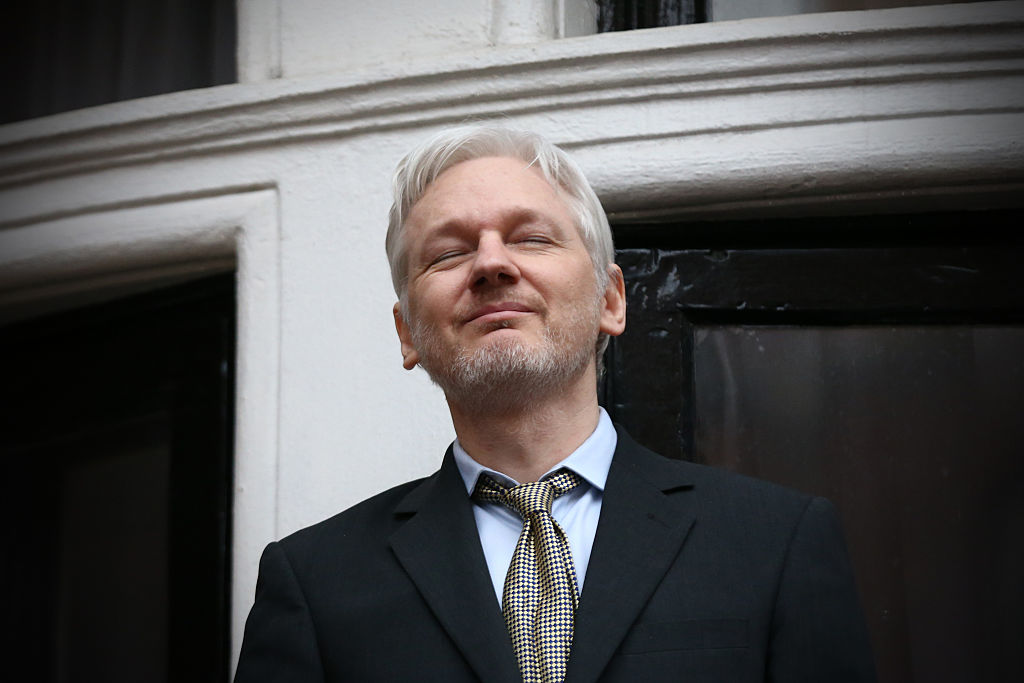
Julian assange's wikileaks disclosures typically help russia, harm west, investigation finds
- Select a language for the TTS:
- UK English Female
- UK English Male
- US English Female
- US English Male
- Australian Female
- Australian Male
- Language selected: (auto detect) - EN
Play all audios:

WikiLeaks is back in the news again, as editor Julian Assange works to insert himself in the U.S. presidential race, and when _The New York Times_ went back and examined WikiLeaks'
activities from the past few years, when Assange has been trapped in the Ecuadoran Embassy in London, the reporters discovered a pattern: "Whether by conviction, convenience, or
coincidence, WikiLeaks' document releases, along with many of Mr. Assange's statements, have often benefited Russia, at the expense of the West." _The New York Times_
isn't calling Assange a Russian spy, more of a useful tool. The "emerging consensus" among U.S. officials is that "Assange and WikiLeaks probably have no direct ties to
Russian intelligence services," _The Times_ says, but that "Moscow knew it had a sympathetic outlet in WikiLeaks, where intermediaries could drop pilfered documents in the
group's anonymized digital inbox." The newspaper doesn't have a smoking gun, but notes a lot of well-timed leaks on trade deals, U.S. classified secrets, and statements
supporting Moscow that harmed U.S. interests or transparency and helped Russian President Vladimir Putin. Assange told _The New York Times_ on Wednesday there's "no concrete
evidence" that WikiLeaks gets its leaks from intelligence agencies, though he would gladly accept such material, and said that there's little point in expending resources on
Russia, which he called a "bit player on the world stage" and a punching bag. "Every man and his dog is criticizing Russia," Assange said. "It's a bit boring,
isn't it?" SUBSCRIBE TO THE WEEK Escape your echo chamber. Get the facts behind the news, plus analysis from multiple perspectives. SUBSCRIBE & SAVE SIGN UP FOR THE WEEK'S
FREE NEWSLETTERS From our morning news briefing to a weekly Good News Newsletter, get the best of The Week delivered directly to your inbox. From our morning news briefing to a weekly Good
News Newsletter, get the best of The Week delivered directly to your inbox. Assange's apparent pro-Russia tilt — increasingly pronounced since he sought asylum in the cramped embassy
four years ago, fearful that if he is arrested in Europe, he will be extradited to the U.S. — has split his supporters. "He views everything through the prism of how he's
treated," one former WikiLeaks collaborator told _The Times_. "America and Hillary Clinton have caused him trouble, and Russia never has." Glenn Greenwald, a transparency
activist who helped with the Edward Snowden leak, told _The New York Times_ that "on balance WikiLeaks is a force for good," but that "it's often hard for me to separate
my personal views of Julian with my views of WikiLeaks." Greenwald is also skeptical that Assange has damaging information on Hillary Clinton, despite his threats. "Julian loves
misinformation; it's his passion," he said. "He'd likely say this just to make the Clintons uncomfortable." Read more about Assange and Russia at _The New York
Times_. Explore More Zurich Speed Reads
